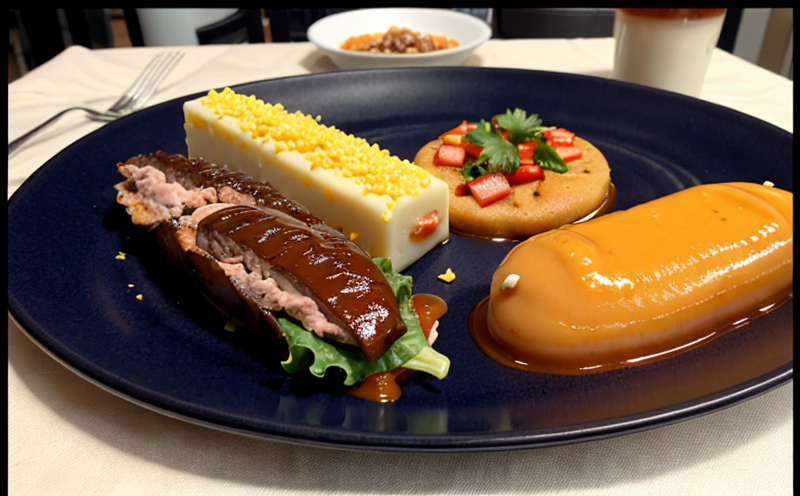ISO 21802-7 Migration Testing under Microwave Conditions
The ISO 21802 series of standards addresses the migration of substances from packaging into foodstuffs. Specifically, ISO 21802-7:2019 provides guidelines for determining the migration of chemical elements and compounds into food contact materials under microwave conditions. This service is crucial for ensuring that any potential migrants do not exceed safe limits set by regulatory authorities.
The primary focus of this testing methodology lies in the use of a microwave oven, which simulates real-world scenarios where consumers may heat or reheat food packages containing packaging materials. The standard covers various types of packaging such as films, foils, containers, and lids used for food contact applications.
Testing under these conditions is essential to verify that no hazardous chemicals leach into the foodstuff during common household use. This includes ensuring compliance with national and international regulations governing food safety standards.
The testing process involves several key steps:
- Preparation of the packaging material according to ISO 21802-1 guidelines
- Placement of the prepared sample in a microwave-safe container along with a defined volume of water or food simulant
- Application of specified microwave energy (e.g., time, power level) based on the type of packaging and its intended use
- Analysis of leachates for target compounds using appropriate analytical techniques like GC-MS, LC-MS/MS, etc.
The results provide valuable insights into the safety profile of food contact materials under actual cooking conditions. Compliance with this standard is not only a regulatory requirement but also enhances consumer confidence in product safety and quality.
| Standard Number | Title |
|---|---|
| ISO 21802-7:2019 | Determination of migration of chemical elements and compounds from food contact materials into food simulants under microwave conditions |
The results are reported based on the specific target substances identified in the testing, with emphasis placed on those considered critical for human health. These could include heavy metals like lead, cadmium, or other contaminants that may be introduced through packaging.
Our laboratory employs state-of-the-art instrumentation and experienced personnel to conduct these tests accurately and efficiently. We ensure all samples are handled carefully throughout the process to maintain integrity and accuracy in results.
Applied Standards
| Standard Number | Title |
|---|---|
| ISO 21802-7:2019 | Determination of migration of chemical elements and compounds from food contact materials into food simulants under microwave conditions |
The application of these standards ensures that the testing procedures are consistent with international best practices, providing reliable data for decision-making purposes.
Industry Applications
- Food packaging manufacturers looking to ensure their products meet regulatory requirements
- R&D teams seeking to develop new food contact materials that are safe and compliant with global standards
- Procurement departments needing objective data on the safety of purchased packaging materials
- Compliance officers ensuring ongoing adherence to changing regulations regarding food safety
This service is particularly relevant for industries dealing with high-risk products, including fresh produce, dairy, and prepared meals. It helps identify potential risks early in the product lifecycle, allowing companies to take corrective actions before issues arise.
Customer Impact and Satisfaction
- Enhanced trust among consumers regarding food safety standards
- Increased market competitiveness through regulatory compliance
- Reduced risk of recalls due to non-compliance with standards
- Better resource allocation for R&D efforts focused on safer packaging solutions
By providing accurate and reliable test results, we contribute significantly to maintaining public health and safety while supporting sustainable business practices.





